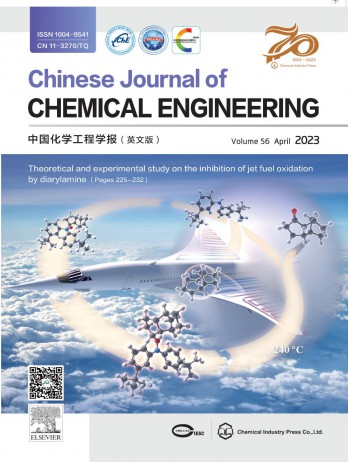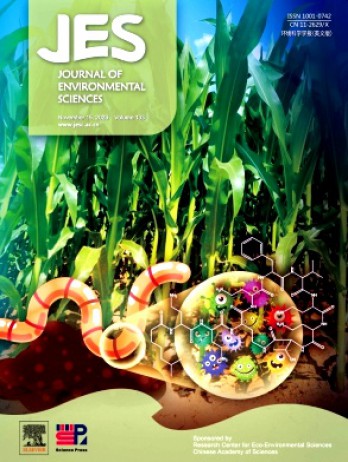一般情況下《Chinese Journal of Chemical Engineering》雜志投稿被拒,版面費有可能退還,具體取決于期刊的相關政策和實際情況,詳細信息可聯系雜志社或咨詢在線客服。
1. 投稿被拒但尚未支付版面費
如果稿件在審稿階段被拒,且尚未支付版面費,自然無需考慮退款問題。
2. 已支付版面費但被拒稿
一般可退:大多數期刊(包括《Chinese Journal of Chemical Engineering》雜志)在退稿后會退還版面費,尤其是如果期刊尚未進入排版或出版流程。
部分扣除審稿費:有些期刊可能會扣除部分審稿費用(如已進行外審),剩余部分退還。
3. 特殊情況
已排版但未出版:如果期刊已完成排版但尚未正式出版,部分期刊可能按比例扣除部分費用后退還剩余款項。
已出版后撤稿:如果論文已正式發表,通常不退版面費,因為費用已用于編輯、排版和出版流程。
4. 如何申請退款
聯系雜志社:通過郵箱或電話與《Chinese Journal of Chemical Engineering》雜志雜志社溝通,說明情況并申請退款。
提供支付憑證:如需退款,可能需要提供匯款記錄或發票信息。
《Chinese Journal of Chemical Engineering》雜志投稿建議:
Title. Concise and informative. Titles are often used in information-retrieval systems. Avoid abbreviations and formulae where possible.
? Author names and affiliations. Please clearly indicate the given name(s) and family name(s) of each author and check that all names are accurately spelled. Present the authors' affiliation addresses (where the actual work was done) below the names. Indicate all affiliations with a lower-case superscript letter immediately after the author's name and in front of the appropriate address. Provide the full postal address of each affiliation, including the country name and, if available, the e-mail address of each author.
? Corresponding author. Clearly indicate who will handle correspondence at all stages of refereeing and publication, also post-publication. Ensure that the e-mail address is given and that contact details are kept up to date by the corresponding author.
? Present/permanent address. If an author has moved since the work described in the article was done, or was visiting at the time, a 'Present address' (or 'Permanent address') may be indicated as a footnote to that author's name. The address at which the author actually did the work must be retained as the main, affiliation address. Superscript Arabic numerals are used for such footnotes.
Abstract
A concise and factual abstract is required. The abstract should state briefly the purpose of the research, the principal results and major conclusions. An abstract is often presented separately from the article, so it must be able to stand alone. For this reason, References should be avoided, but if essential, then cite the author(s) and year(s). Also, non-standard or uncommon abbreviations should be avoided, but if essential they must be defined at their first mention in the abstract itself.
Graphical Abstract
A Graphical abstract is optional and should summarize the contents of the article in a concise, pictorial form designed to capture the attention of a wide readership online. Authors must provide images that clearly represent the work described in the article. Graphical abstracts should be submitted as a separate file in the online submission system. Image size: Please provide an image with a minimum of 531 × 1328 pixels (h × w) or proportionally more. The image should be readable at a size of 5 ×13 cm using a regular screen resolution of 96 dpi. Preferred file types: TIFF, EPS, PDF or MS Office files.
Highlights
Highlights are mandatory for this journal. They consist of a short collection of bullet points that convey the core findings of the article and should be submitted in a separate file in the online submission system. Please use 'Highlights' in the file name and include 3 to 5 bullet points (maximum 85 characters, including spaces, per bullet point).
Keywords
Authors are invited to submit a maximum of 6 keywords associated with their paper, using British or American spelling and avoiding general and plural terms and multiple concepts (avoid, for example, "and", "of"). Be sparing with abbreviations: only abbreviations firmly established in the field may be eligible. These keywords will be used for indexing purposes. At least 3 of these keywords should be chosen from the list of recommended keywords.
Abbreviations
Define abbreviations that are not standard in this field in a footnote to be placed on the first page of the article. Such abbreviations that are unavoidable in the abstract must be defined at their first mention there, as well as in the footnote. Ensure consistency of abbreviations throughout the article.
Acknowledgements
Collate acknowledgements in a separate section at the end of the article before the references and do not, therefore, include them on the title page, as a footnote to the title or otherwise. List here those individuals who provided help during the research (e.g., providing language help, writing assistance or proof reading the article, etc.).
Formatting of funding sources
List funding sources in this standard way to facilitate compliance to funder's requirements:
Funding: This work was supported by the National Institutes of Health [grant numbers xxxx, yyyy]; the Bill & Melinda Gates Foundation, Seattle, WA [grant number zzzz]; and the United States Institutes of Peace [grant number aaaa].
It is not necessary to include detailed descriptions on the program or type of grants and awards. When funding is from a block grant or other resources available to a university, college, or other research institution, submit the name of the institute or organization that provided the funding.
If no funding has been provided for the research, please include the following sentence:
This research did not receive any specific grant from funding agencies in the public, commercial, or not-for-profit sectors.
Nomenclature and units
Follow internationally accepted rules and conventions: use the international system of units (SI). If other quantities are mentioned, give their equivalent in SI. Prohibit the use of the following non-SI units, e.g. M, ppm, bar, atm, ?, cal, et al. Authors wishing to present a table of nomenclature should do so on the second page of their manuscript.
Math formulae
Please submit math equations as editable text and not as images. Present simple formulae in line with normal text where possible and use the solidus (/) instead of a horizontal line for small fractional terms, e.g., X/Y. In principle, variables are to be presented in italics. Powers of e are often more conveniently denoted by exp. Number consecutively any equations that have to be displayed separately from the text (if referred to explicitly in the text).
Footnotes
Footnotes should be used sparingly. Number them consecutively throughout the article. Many word processors can build footnotes into the text, and this feature may be used. Otherwise, please indicate the position of footnotes in the text and list the footnotes themselves separately at the end of the article.
Reference Style
References should be numbered in the order of appearance. The following are examples of different types of references.
(1) S.M. Kresta, Characterization, measurement and prediction of the turbulent flow in stirred tanks, Ph. D. Thesis,McMaster Univ., Canada?1991.
(2) Q.Yu, J.T. Matheickal, P. Yin, P. Kaewsarn, Heavy metal uptake capacities of biomass: A comparison,Proceedings of Chemeca'98, Port Douglas, Australia, 1998.
(3) J.X. Xu, A survey on iterative learning control for nonlinear systems, Int. J. Control, 84 (7) (2001)1275-1294.
(4) T. Brawn, Extraction Chromatography, Elsevier, Amsterdam?1975.
(5) S. Osaki, Multistage vortex pump, Japan Pat., 62186095 (1986).
《Chinese Journal of Chemical Engineering》雜志是由中國化工學會主辦的化學學術期刊,創刊于1982年,月刊國內外公開發行,國際刊號:1004-9541,國內刊號:11-3270/TQ。
該雜志以反映化學改革與發展最新成果、探索化學規律為宗旨,學術視野覆蓋了研究論文、傳遞現象與流體力學、分離科學與工程、反應動力學,催化及化學反應工程、系統工程、熱力學和化工數據、生物技術與生物工程、過程技術與產品技術等多元領域。
《Chinese Journal of Chemical Engineering》雜志在學術界具有較高的影響力,其收錄與榮譽有:中國科技期刊優秀期刊、中國期刊方陣雙效期刊、CSCD 中國科學引文數據庫來源期刊(含擴展版)、統計源期刊(中國科技論文優秀期刊)、知網收錄(中)、維普收錄(中)、萬方收錄(中)、EI 工程索引(美)、CA 化學文摘(美)、SCI 科學引文索引(美)、JST 日本科學技術振興機構數據庫(日)、Pж(AJ) 文摘雜志(俄)等。無論是學術研究還是實踐指導,《Chinese Journal of Chemical Engineering》雜志都能提供可靠的支持。
聲明:本信息依據互聯網公開資料整理,若存在錯誤,請及時聯系我們及時更正。



